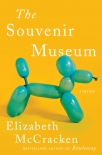An American Tragedy, Theodore Dreiser [best business books of all time txt] 📗

- Author: Theodore Dreiser
Book online «An American Tragedy, Theodore Dreiser [best business books of all time txt] 📗». Author Theodore Dreiser
Mason then calling a Mrs. Rutger Donahue, who proceeded, in the calmest and most placid fashion, to tell how on the evening of July eighth last, between five-thirty and six, she and her husband immediately after setting up a tent above Moon Cove, had started out to row and fish, when being about a half-mile off shore and perhaps a quarter of a mile above the woods or northern fringe of land which enclosed Moon Cove, she had heard a cry.
“Between half past five and six in the afternoon, you say?”
“Yes, sir.”
“And on what date again?”
“July eighth.”
“And where were you exactly at that time?”
“We were—”
“Not ‘we.’ Where were you personally?”
“I was crossing what I have since learned was South Bay in a rowboat with my husband.”
“Yes. Now tell what happened next.”
“When we reached the middle of the bay I heard a cry.”
“What was it like?”
“It was penetrating—like the cry of someone in pain—or in danger. It was sharp—a haunting cry.”
Here a motion to “strike out,” with the result that the last phrase was so ordered stricken out.
“Where did it come from?”
“From a distance. From within or beyond the woods.”
“Did you know at the time that there was another bay or cove there—below that strip of woods?”
“No, sir.”
“Well, what did you think then—that it might have come from within the woods below where you were?”
(Objected to—and objection sustained.)
“And now tell us, was it a man’s or a woman’s cry? What kind of a cry was it?”
“It was a woman’s cry, and something like ‘Oh, oh!’ or ‘Oh, my!’—very piercing and clear, but distant, of course. A double scream such as one might make when in pain.”
“You are sure you could not be mistaken as to the kind of a cry it was—male or female.”
“No, sir. I am positive. It was a woman’s. It was pitched too high for a man’s voice or a boy’s. It could not have been anything but a woman’s.”
“I see. And now tell us, Mrs. Donahue—you see this dot on the map showing where the body of Roberta Alden was found?”
“Yes, sir.”
“And you see this other dot, over those trees, showing approximately where your boat was?”
“Yes, sir.”
“Do you think that voice came from where this dot in Moon Cove is?”
(Objected to. Sustained.)
“And was that cry repeated?”
“No, sir. I waited, and I called my husband’s attention to it, too, and we waited, but didn’t hear it again.”
Then Belknap, eager to prove that it might have been a terrified and yet not a pained or injured cry, taking her and going all over the ground again, and finding that neither she nor her husband, who was also put on the stand, could be shaken in any way. Neither, they insisted, could the deep and sad effect of this woman’s voice be eradicated from their minds. It had haunted both, and once in their camp again they had talked about it. Because it was dusk he did not wish to go seeking after the spot from which it came; because she felt that some woman or girl might have been slain in those woods, she did not want to stay any longer, and the next morning early they had moved on to another lake.
Thomas Barrett, another Adirondack guide, connected with a camp at Dam’s Lake, swore that at the time referred to by Mrs. Donahue, he was walking along the shore toward Big Bittern Inn and had seen not only a man and woman off shore in about the position described, but farther back, toward the south shore of this bay, had noted the tent of these campers. Also that from no point outside Moon Cove, unless near the entrance, could one observe any boat within the cove. The entrance was narrow and any view from the lake proper completely blocked. And there were other witnesses to prove this.
At this psychological moment, as the afternoon sun was already beginning to wane in the tall, narrow courtroom, and as carefully planned by him beforehand, Mason’s reading all of Roberta’s letters, one by one, in a most simple and nondeclamatory fashion, yet with all the sympathy and emotion which their first perusal had stirred in him. They had made him cry.
He began with letter number one, dated June eighth, only three days after her departure from Lycurgus, and on through them all down to letters fourteen, fifteen, sixteen and seventeen, in which, in piecemeal or by important references here and there, she related her whole contact with Clyde down to his plan to come for her in three weeks, then in a month, then on July eighth or ninth, and then the sudden threat from her which precipitated his sudden decision to meet her at Fonda. And as Mason read them, all most movingly, the moist eyes and the handkerchiefs and the coughs in the audience and among the jurors attested their import:
“You said I was not to worry or think so much





Comments (0)